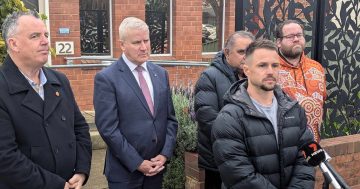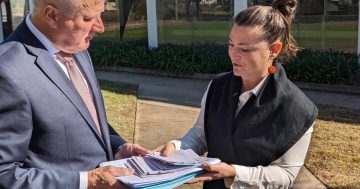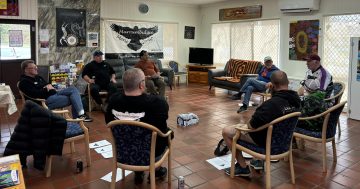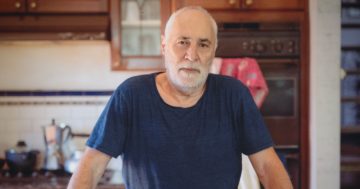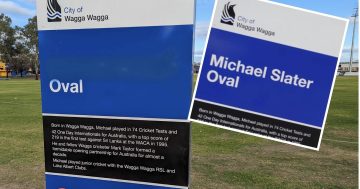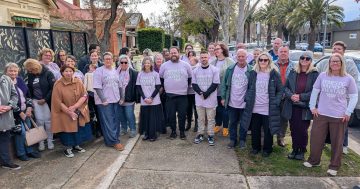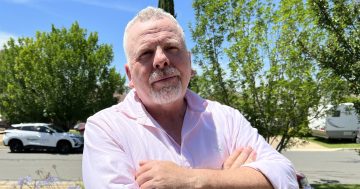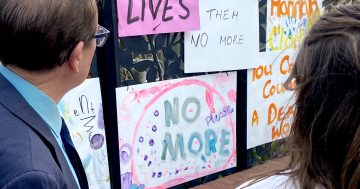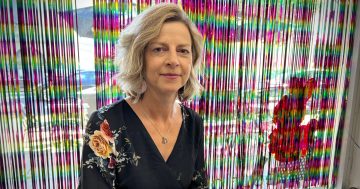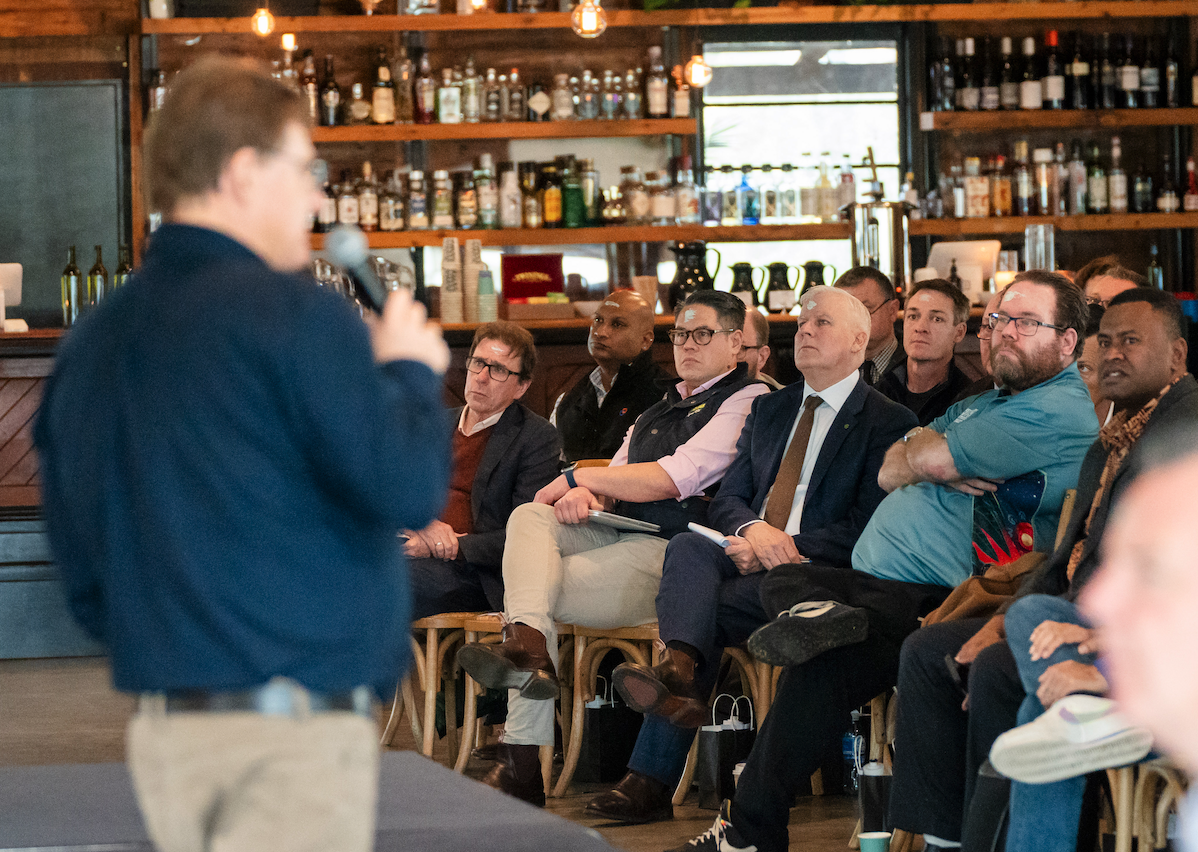
Over 100 men from around Wagga gathered for a leadership forum seeking understanding and community solutions around domestic violence. Photo: Supplied.
On Friday (26 July), over 100 Riverina men from various walks of life gathered at the Wild Vine in Oura for a landmark Men’s Leadership Forum on Domestic and Family Violence.
Organised by the Wagga Women’s Health Centre, the men-only event was about confronting the problem and looking for community-led solutions.
Along with First Nations elder Uncle James Ingram, Member for Riverina Michael McCormack and Member for Wagga Dr Joe McGirr, Mayor Dallas Tout was one of the drivers of the forum and said it was great to see such a solid turnout.
“There was a wide-ranging group of people there from different clubs, different organisations, individuals, but there was buy-in from everyone,” he said.
“You could feel it at the beginning, but you could feel it a lot stronger as the day progressed.
“At the start there was some conversations about respecting each other and each other’s opinions and that’s what happened.
“We were able to do that through a whole day of difficult conversations and comments, but still respect each other.”
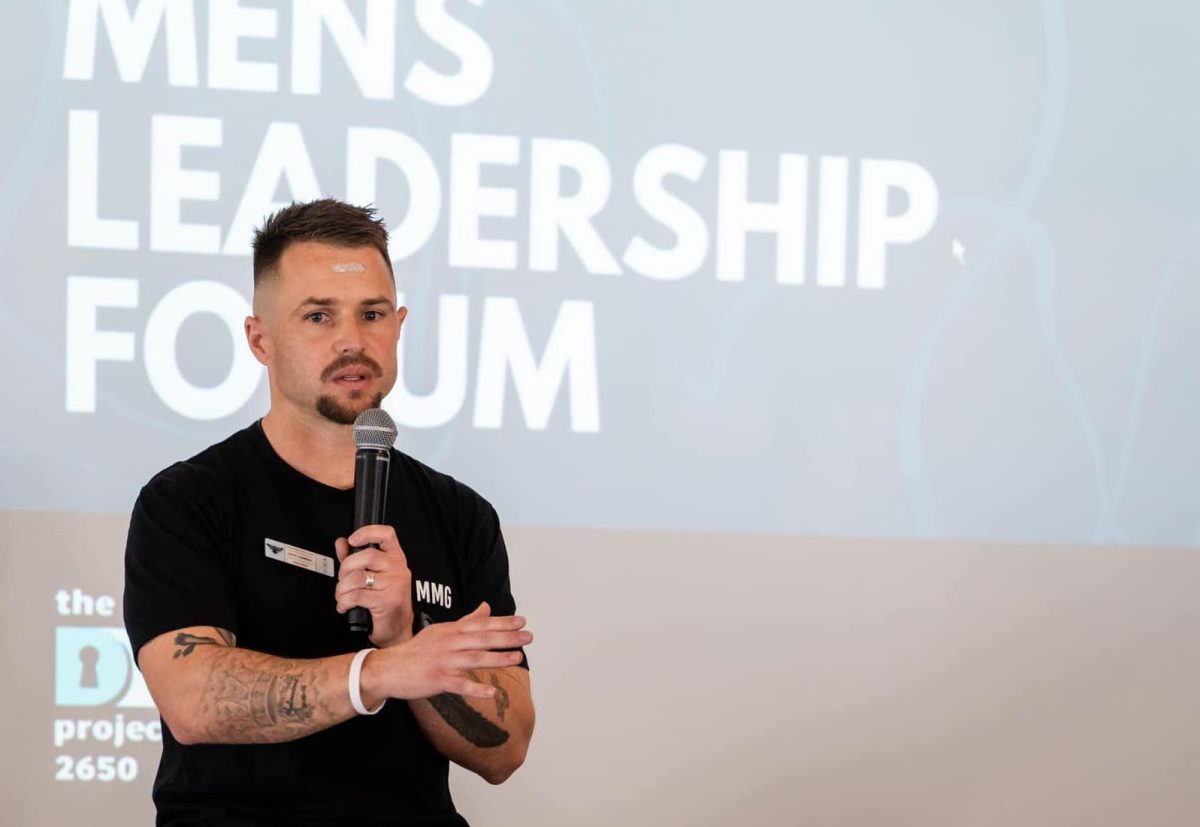
Wagga’s Rhys Cummins shared his story and experience as the founder of the Murrumbidgee Men’s Group. Photo: Supplied.
A woman is killed by a man every four days in Australia and attendees were challenged to take ownership of issues like public safety and societal attitudes that can have negative consequences.
Cr Tout said a key moment came when behavioural scientist Dave Kramer laid out an escalating sequence of behaviours that, if tolerated, can ultimately end in violence.
“That was something that everyone locked onto and once you understood that, you got it,” he said.
“How allowing people have inappropriate language, inappropriate jokes, inappropriate comments in a workplace or out at the pub, wherever it is, that validates people’s behaviour.”
Cr Richard Foley also attended the event and wants to see a men’s version of Wagga’s Women’s Health Centre established to help unpack the layers of trauma that many people deal with.
“I actually believe that we need a Riverina Men’s Centre and that could work on a collaborative basis with centres like [The Wagga Women’s Health Centre] on the issues that are of key importance and affect both parties,” he said.
“Wagga could be a test case and a blueprint of what we could do.”
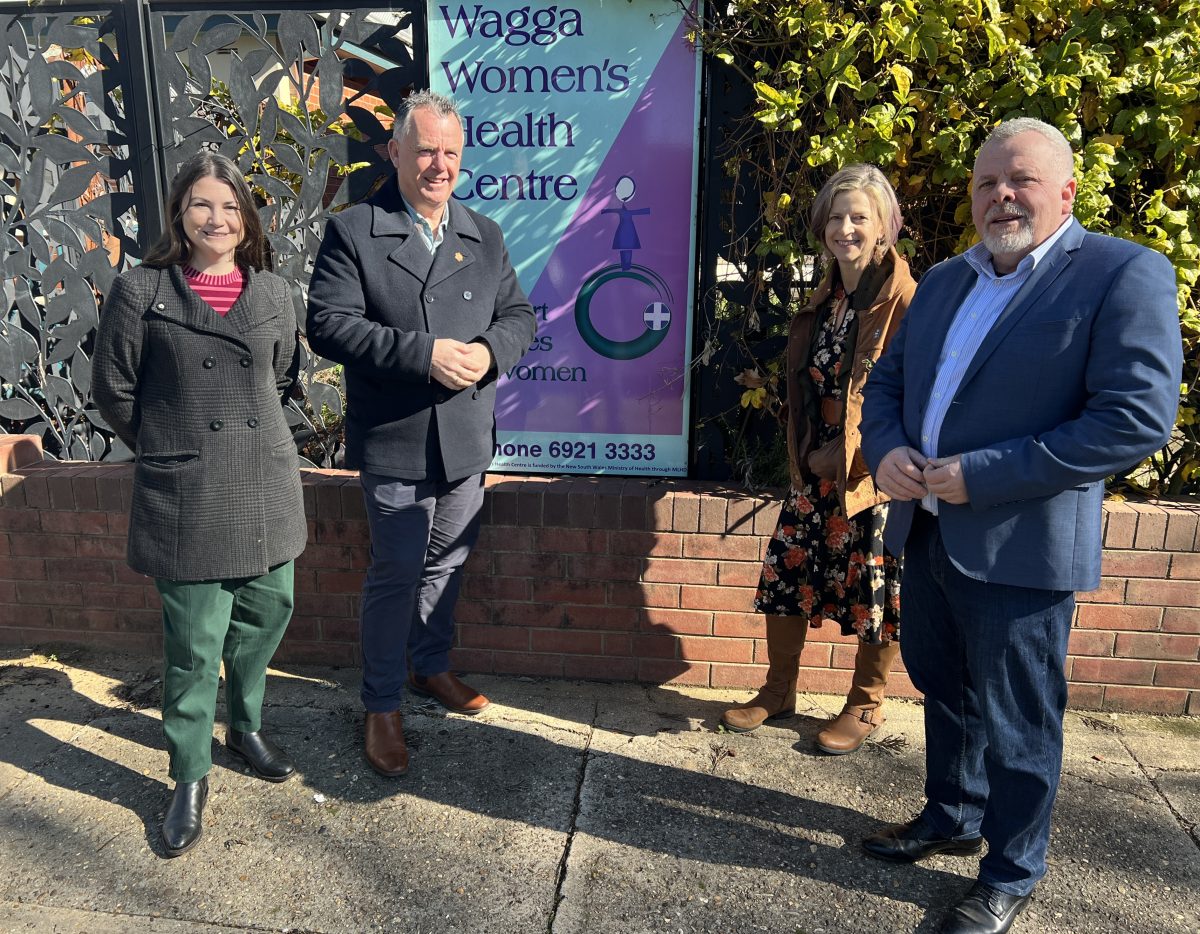
WWHC director Johanna Elms, Wagga Mayor Dallas Tout, WWHC president Vickie Birkinshaw and Councillor Richard Foley. Photo: Chris Roe.
Wagga Women’s Health Centre director Johanna Elms said the men’s forum was a unique approach that she hoped would soon bear fruit.
“This event is really innovative. It’s the first of its kind to be held in Australia and potentially around the world,” Ms Elms said.
“It was a women’s organisation making space and inviting men into the conversation with absolute non-judgement.”
She said one of the underpinning values of the event was curiosity and that they had put First Nations men at the forefront and learned from programs that were successful in the Northern Territory.
“We do not have time for a federal and national agenda to be filtered down into the regions. We also don’t have time to wait for a city model to work in regional Australia,” Ms Elms said.
“This is about regional Australians working out what’s right for their community and working together on that, and I think that was another really important point of difference in this event.”
Looking ahead, Wagga Women’s Health Centre president Vickie Birkenshaw said there had been overwhelming agreement that the forum had been a valuable first step.
“It’s not about women saying this is what you need to do. We want men to say, this is what we need your help with,” she said.
“I think it’s that whole idea about recognising as a community we are stronger together, we are better together, men and women working together.
“It’s a really important step in the way that we take this forward.”
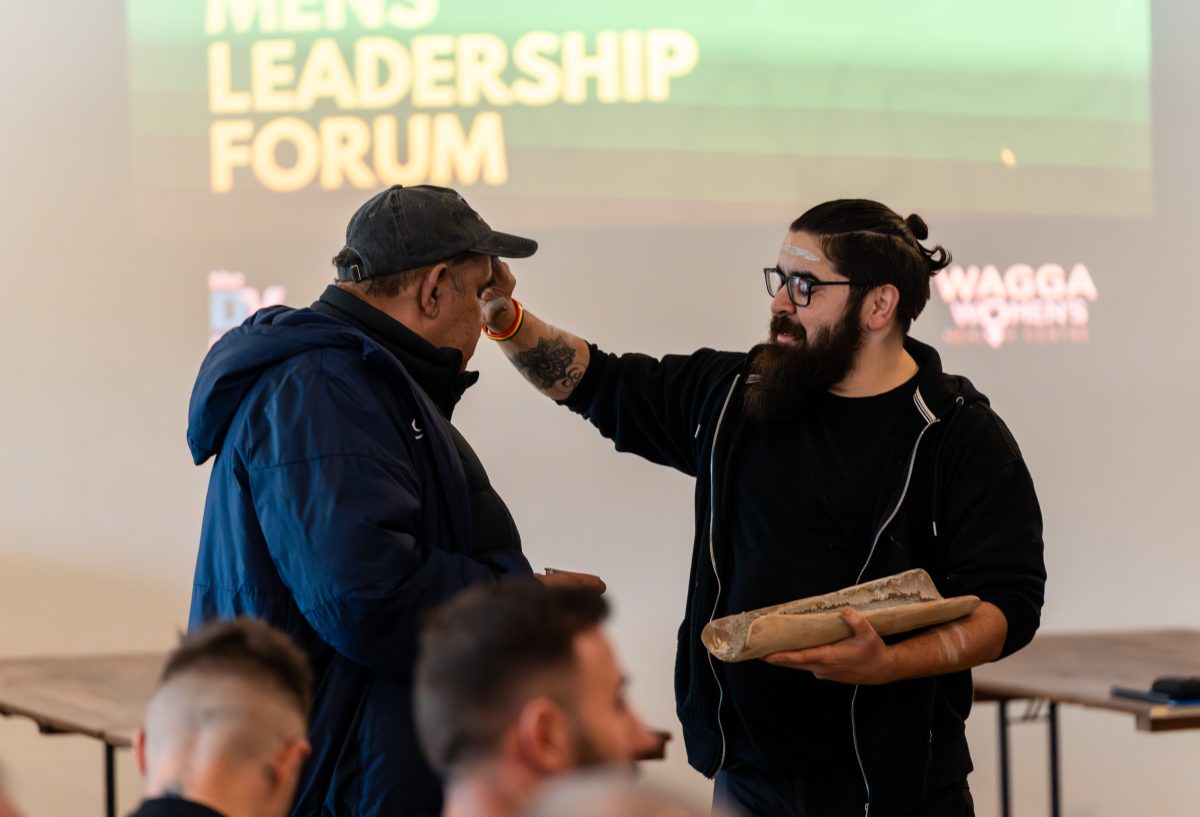
First Nations men, including Uncle James Ingram, helped lead the forum. Photo: Supplied.
According to the results of a post-forum survey, 98 per cent of attendees reported feeling more confident to discuss the issue with others, 95 per cent felt hopeful that we can create positive change in the next five years and 97 per cent of attendees indicated they wanted to be involved in the next steps of making that happen.
“A very, very high number of people want to continue to be involved in ongoing things,” said Cr Tout, adding that he, Michael McCormack and Dr Joe McGirr were committed to facilitating further action.
“We’ll pull a group together, have conversations, go over everything that happened and I would imagine that there could be a multitude of different things that could happen.
“I think we can have some short-term, medium-term and some long-term things because it will be a generational thing going forward.”
Watch this space.







